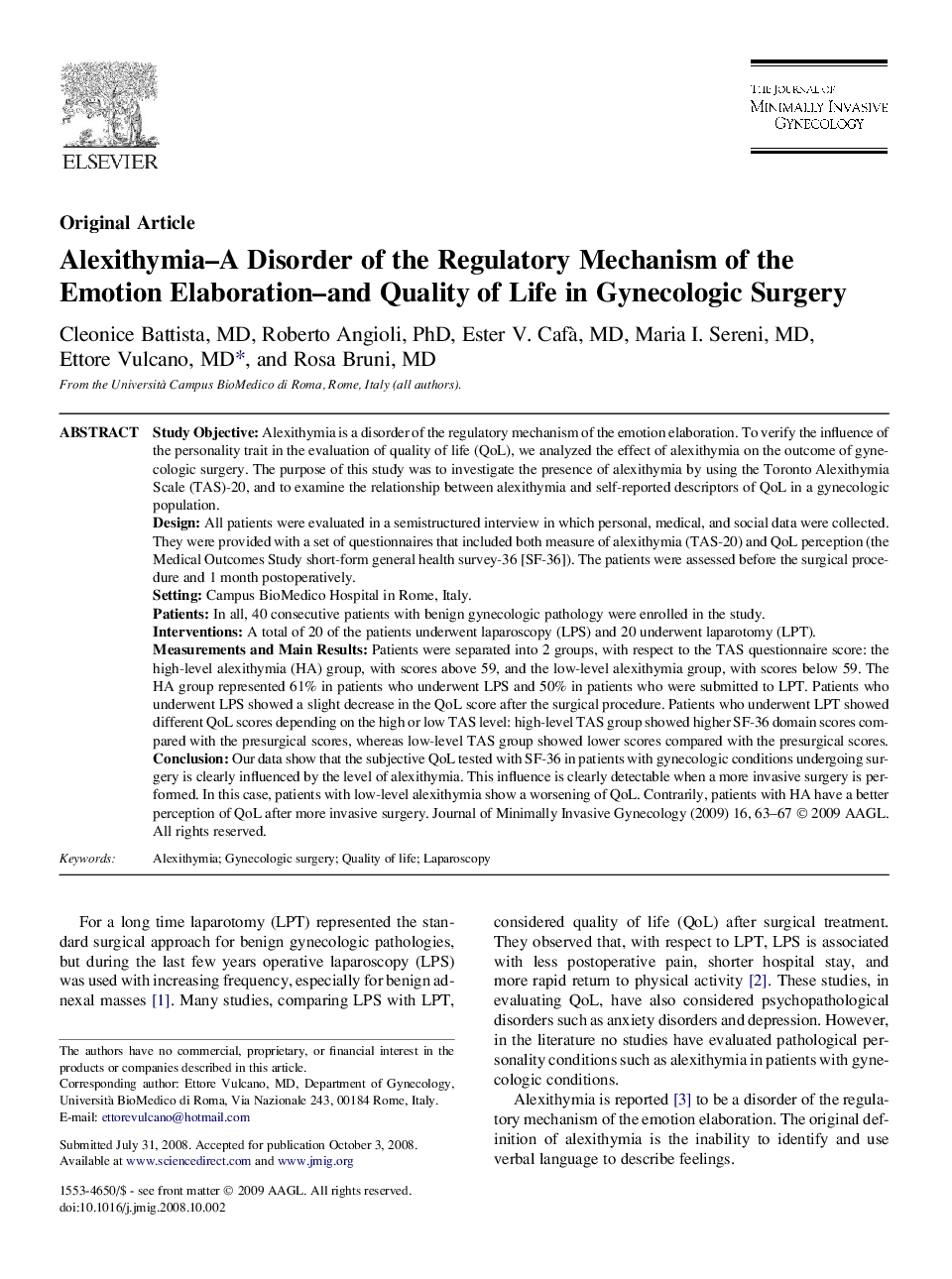| Article ID | Journal | Published Year | Pages | File Type |
|---|---|---|---|---|
| 3957261 | Journal of Minimally Invasive Gynecology | 2009 | 5 Pages |
Study ObjectiveAlexithymia is a disorder of the regulatory mechanism of the emotion elaboration. To verify the influence of the personality trait in the evaluation of quality of life (QoL), we analyzed the effect of alexithymia on the outcome of gynecologic surgery. The purpose of this study was to investigate the presence of alexithymia by using the Toronto Alexithymia Scale (TAS)-20, and to examine the relationship between alexithymia and self-reported descriptors of QoL in a gynecologic population.DesignAll patients were evaluated in a semistructured interview in which personal, medical, and social data were collected. They were provided with a set of questionnaires that included both measure of alexithymia (TAS-20) and QoL perception (the Medical Outcomes Study short-form general health survey-36 [SF-36]). The patients were assessed before the surgical procedure and 1 month postoperatively.SettingCampus BioMedico Hospital in Rome, Italy.PatientsIn all, 40 consecutive patients with benign gynecologic pathology were enrolled in the study.InterventionsA total of 20 of the patients underwent laparoscopy (LPS) and 20 underwent laparotomy (LPT).Measurements and Main ResultsPatients were separated into 2 groups, with respect to the TAS questionnaire score: the high-level alexithymia (HA) group, with scores above 59, and the low-level alexithymia group, with scores below 59. The HA group represented 61% in patients who underwent LPS and 50% in patients who were submitted to LPT. Patients who underwent LPS showed a slight decrease in the QoL score after the surgical procedure. Patients who underwent LPT showed different QoL scores depending on the high or low TAS level: high-level TAS group showed higher SF-36 domain scores compared with the presurgical scores, whereas low-level TAS group showed lower scores compared with the presurgical scores.ConclusionOur data show that the subjective QoL tested with SF-36 in patients with gynecologic conditions undergoing surgery is clearly influenced by the level of alexithymia. This influence is clearly detectable when a more invasive surgery is performed. In this case, patients with low-level alexithymia show a worsening of QoL. Contrarily, patients with HA have a better perception of QoL after more invasive surgery.
